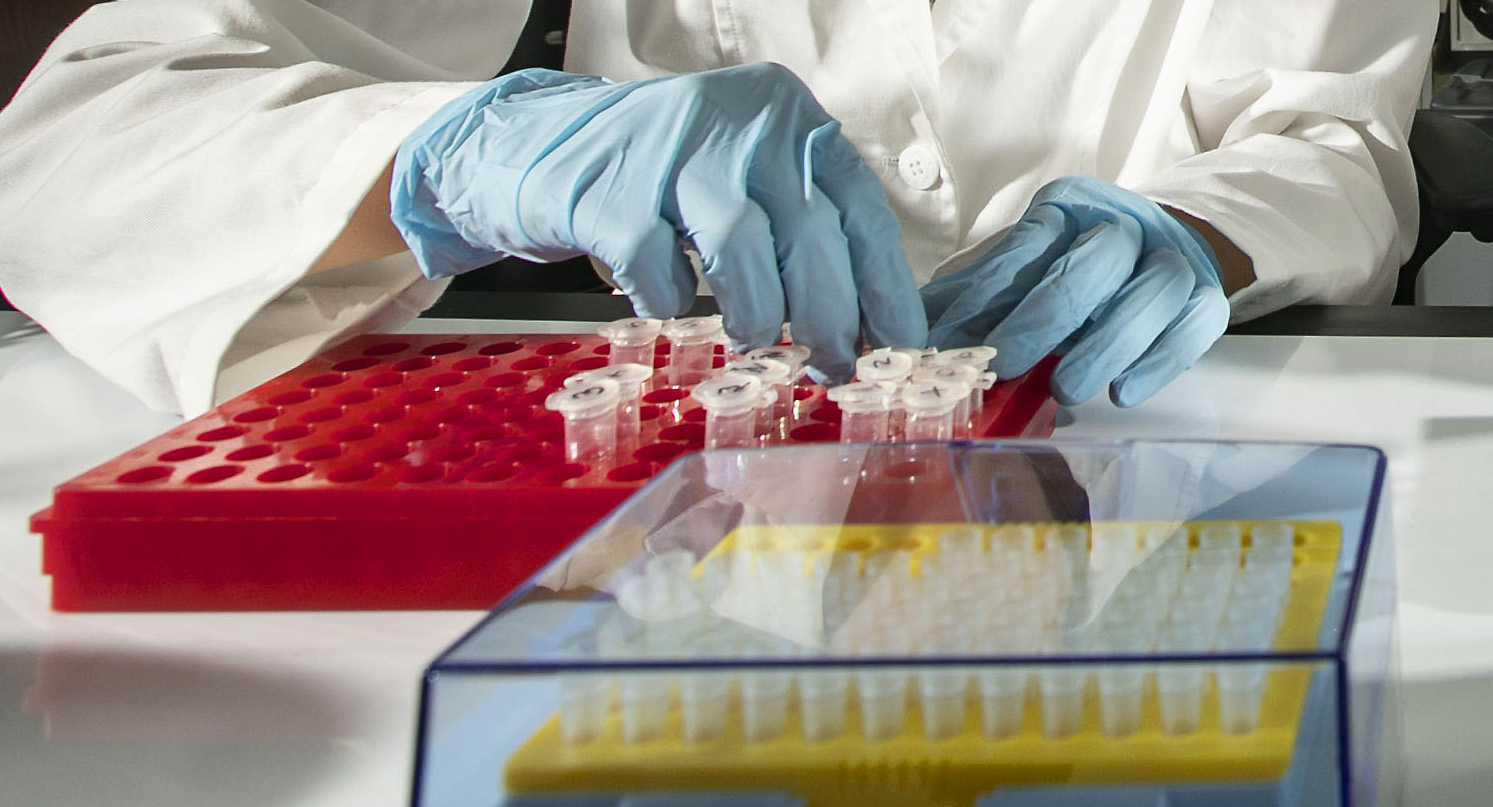 The Engage and Persist in STEM Project, or EPISTEM, will award annual scholarships of $10,000 for four years to two cohorts of eight freshmen who are STEM majors. In addition to a robust mentoring program, students will participate in a series of workshops, internships and research opportunities every quarter throughout their college experience. (DePaul University/Jamie Moncrief)
The Engage and Persist in STEM Project, or EPISTEM, will award annual scholarships of $10,000 for four years to two cohorts of eight freshmen who are STEM majors. In addition to a robust mentoring program, students will participate in a series of workshops, internships and research opportunities every quarter throughout their college experience. (DePaul University/Jamie Moncrief)
Over the next decade, the U.S. Bureau of Labor Statistics estimates a significant increase in the demand for scientists, mathematicians, engineers and other STEM professionals. A grant from the National Science Foundation will help STEM students at DePaul University achieve their career ambitions.At the beginning of the 2020-21 academic year, NSF awarded DePaul's College of Science and Health a $1 million grant to support STEM undergraduate student retention and graduation. The Engage and Persist in STEM Project, or EPISTEM, will award annual scholarships of $10,000 for four years to two cohorts of eight freshmen who are STEM majors.
“This is a rigorous program. Students will be well mentored and have ample opportunities to do research," says Jim Montgomery, the principal investigator for the grant and associate professor of environmental science. “We need to give them every opportunity to wear the cap of a scientist. It's about developing a growth mindset."
Among its goals, the EPISTEM project aims to create pathways for low-income, academically talented students to enter graduate programs and the STEM workforce. Extensive mentoring and career coaching programs will be at the center of the project, and scholarships will be awarded to the first freshman cohort in fall 2021.
“The innovation of the EPISTEM project is creating a pathway that not only provides financial assistance but also the support these students need," says Bernhard Beck-Winchatz, co-principal investigator, professor in the Department of Physics and Astrophysics and interim director of the DePaul's STEM Center.
Creating a learning community is a central component for the EPISTEM project. Advanced STEM students who have research experience and high academic performance will serve as peer mentors and tutors to freshmen and sophomores. More than 20 faculty members in DePaul's STEM departments also will serve as mentors.
“A learning community gives STEM students a supportive environment to explore their interests, network with each other and develop new networks within DePaul and the STEM fields," says Luciano Berardi, director of DePaul's TRIO programs and co-principal investigator. “This community will help shape each student's identity as a STEM scholar and give them a place to belong within the university."
Curricular components include focal point seminars for freshmen on such topics as global warming and the media. In a series of scientific writing seminars, sophomores will learn how to write research papers and publish their final products in a journal. EPISTEM scholars also will participate in a series of workshops, internships and research opportunities every quarter throughout their college experience. CSH STEM alumni will share their advice and career experience.
“Students will be well mentored along the way," Montgomery says.
An interdisciplinary collaboration, the EPISTEM project represents six departments within CSH: environmental science and studies; biological sciences; chemistry and biochemistry; physics and astrophysics; mathematics and STEM studies. The project also involves multiple areas across the university, including Admissions, Career Center, Center for Access and Attainment, Institute for Research and Market Analytics, Financial Aid and Writing, Rhetoric & Discourse.
“This is a true interdisciplinary collaboration across the university," says Susan McMahon, CSH associate dean for research, professor of psychology, STEM administrator and co-principal investigator. “The EPISTEM project is a shining showpiece for our college, promoting research across boundaries. It is designed to provide unique opportunities to enhance success among low-income students, connecting directly to DePaul's mission."
For more information about the EPISTEM project, contact Dr. James Montgomery at jmontgom@depaul.edu.
 From left: Bernhard Beck-Winchatz, Jim Montgomery (principal investigator), Luciano Berardi and Susan McMahon secured the grant from the National Science Foundation.
From left: Bernhard Beck-Winchatz, Jim Montgomery (principal investigator), Luciano Berardi and Susan McMahon secured the grant from the National Science Foundation.